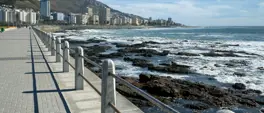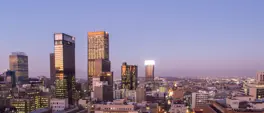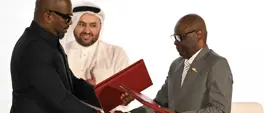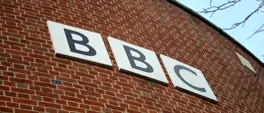SHADRACK TLHAOLE: A response to Zamani Saul on apartheid colonialism
Shadrack Tlhaole
15 January 2024 | 12:14A glaring omission in Saul's argument is the undeniable destruction of South Africa's strategic public assets, which should have been the foundation and basis for building a stronger nation, writes Shadrack Tlhaole.
In the Party directive, sent to comrades in 1965, Amilcar Cabral reminds his comrades who were fighting with him for the independence of Guinea and Cape Verde Islands that the people are not fighting for ideas, for the things in anyone’s head. The people were fighting to win material benefits, to live better and in peace, to see their lives go forward, to guarantee the future of their children. This, we must never lose sight of; in fact, each day that passes by without getting our people in this direction, we must always lose sleep.
But Cabral said something even more daring, something which those who remain in the shadow of the former liberation movement, the African National Congress (ANC), seem to have forgotten.
Cabral said, “Tell no lies. Expose lies whenever they are told. Mask no difficulties, mistakes, failures.” But more importantly, he concluded by reminding us to claim no easy victories.
The Provincial Chairperson of the ANC in the Northern Cape, Dr. Zamani Saul, would do well not to lie to our people, and not to claim easy victories.
In any other time, we would say the claim he makes that 30 years is not enough to remove the impact of apartheid colonialism is due to intellectual laziness, and being out of touch with reality. In a longer than usual opinion piece, Saul tries to tell our people that 30 years is just the beginning, and they would do well to wait many more years to see transformation and change in the course of their lives.
This Saul does by using the example of the People’s Republic of China, Vietnam, and most oddly, the United States of America. He even goes further to reference the Reconstruction and Development Programme (RDP) and the National Development Plan (NDP) as two policies which acknowledged that addressing apartheid colonialism would take far much longer than what people perhaps are expecting, something which he is insinuating the ANC has always been aware of.
In doing so, he presents some statistics to demonstrate that indeed there has been progress. As revolutionaries, we have no choice but to expose the lies.
However, in addition to these points, a glaring omission in Saul's argument is the undeniable destruction of South Africa's strategic public assets, which should have been the foundation and basis for building a stronger nation.
The mismanagement and corruption in key sectors such as energy, water, and transportation have not only stalled progress, but actively regressed it.
For instance, the degradation of Eskom, South Africa’s primary electricity supply company, has led to persistent power outages, crippling the economy and the lives of ordinary citizens. This destruction of essential public assets demonstrates a failure not just in policy implementation, but in safeguarding the very assets that are crucial for any form of progress.
But because we are busy with election work, crisscrossing the whole of the Northern Cape, telling our people that economic freedom is coming, 2024 is their 1994, we will just demonstrate the confusion that now characterides much of the thinking in the now dying former liberation movement.
Firstly, using the cases of China and Vietnam are misplaced, and are poor example choices.
We don’t have as many people as they do, and we did not have a revolution like they did. Between the Fall of the Qing Dynasty, Warlord Era, Chinese Civil War, and the Second Sino-Japanese War that ended in 1945, Chinese people had fought foreign domination and influence to build a character of society that could afford policy mishaps. For them, it was not a matter of complacency, misguided policy choices, avoidable faults, and errors, but conditions that determined necessary adaptations and changes with credible leadership.
In the end, these are societies that were able to build their societies as they have imagined them, not as neocolonial puppets.
To then compare their conditions and timeframes with ours is not only dishonest, but it is lazy. There are other nations more closely aligned with South Africa’s conditions that can assist to explain that the past 30 years have indeed been a travesty of political freedom for our people.
In a very short space of time, Cuba was able to reduce infant mortality from 32/1,000 live births to just 10/1,000, the lowest in Latin America. Cuba improved its literacy rate from 76% to 99.6% within a very short space of time, equal to Argentina and first place in Latin America. This is in addition to universal healthcare and free education. Today, Cuba has the largest training programs for doctors and sends the largest number of medical officers all over the under-developed world.
But there is another example far much closer to home. When Thomas Sankara, a Marxist revolutionary, pan-Africanist theorist, and the first President of Burkina Faso, was able to demonstrate that, even within the shortest possible time, a committed government can do for its people what South Africa under the former liberation movement will not achieve even if they govern for another 30 years.
Sankara was able to initiate a nationwide literacy campaign, increasing the literacy rate from 13% in 1983 to 73% within just a space of four years. He redistributed land and gave it to the people, appointed women to senior positions in government, recruited them into the military, built roads and a railway to tie the nation together, all without any foreign aid or foreign investors.
The difference is, Cuba and Burkina Faso were not led by misguided and directionless people who can no longer make a distinction between reality and fiction.
In a striking contrast to the examples of proactive development in Cuba and Burkina Faso, let's consider the case of the Wildax plant community in Dikgatlong municipality. One of the oldest communities since the dawn of democracy, and 30 years down the line, this community has received zero services from the incumbent state.
They are forced to drink water from the river and are cut off from crossing it when it overflows. This effectively classifies the Wildax plant as an abandoned and outcast community, starkly underscoring the failures of the current administration.
Similarly, in Magareng municipality's ward 5, in an area called Majeng, we witness a typical rural, dejected community. Lacking basic amenities like water and electricity, Majeng stands as a testament to the feeble reality of a 'modern and growing province,' a promise that falls flat in the face of such glaring neglect. This is a far cry from the rosy picture painted by Dr. Zamani Saul.
Secondly, and very briefly, none of the examples Saul uses to demonstrate imagined progress to explain the essence of much time needed to remove the impact of apartheid colonialism talks to the core of the struggle and battle cry, the cry for land.
The former liberation movement has made it abundantly clear that they have no intention to expropriate all land without compensation for equal redistribution in use. Without land, we are nothing. We cannot build toward anything without land. We need land to start moving towards the promised land. All that Saul is saying is imaginary without land.
The ANC government had committed to get back more than 30% of land through land reform program to black African people. Thus far, only 7% of the land has been returned, and the rest remains in the hands of colonial and apartheid beneficiaries.
What is even more shocking is that those who control the land have also retained their apartheid economy privileges, 30 years into this democracy. Saul does not say that China controls all the land, and it is through the land that the country was supposed to rebuild and alleviate millions out of poverty.
Another poignant example can be found in Ubuntu, a sub-region in the Pixley ka Seme region, which is ironically where Dr. Zamani hails from.
Here lies Hutchison, a former Transnet establishment and housing area. Despite its developed infrastructure, this community hasn't received any significant support from the current state. Instead of modernising and nurturing this developed site, it has been allowed to become dilapidated and unattractive, starkly contradicting the rhetoric of modernisation and a growing province touted by the lying Northern Cape Premier.
Third and last, there is now a growing consensus that the ANC has neither the will nor the political capacity to adopt a coherent and clear program that will deal with unemployment, inequality, and poverty. Much of this is mainly because the party itself has admitted that it does not control the strategic sectors of the economy necessary to bring about much-needed transformation.
The state has collapsed, particularly municipalities including here in the Northern Cape. The majority of the municipalities cannot carry out basic functions. Crime has become a pandemic, with more than 26,000 people murdered every year, more than in some declared civil war territories.
Hospitals and clinics do not have enough nurses and doctors. To then ask our people how many more decades it will take to remove the impact of apartheid colonialism is not a matter that necessitates engagements that deny them water, electricity, basic medical health services, safety, food security, and the ability to protect their own children.
Our people want to be on a path that will lead to the removal of the impact of apartheid colonialism, and this should start with the land, something we could have achieved since 2014. It is not a matter of ongoing negative narrative on the developmental progress, in fact, it is by the liberation movement's own admission.
It is dishonest, illusionary, and a clear misunderstanding of the state of South Africa, and we have the duty to expose these lies.
Our people have spoken, the year 2024 is our 1994, and we will deliver economic freedom to our people so that they do not have to wait another 30 years to be told they must wait for another 60 years before they can have drinking water and reliable electricity.
Shadrack Tlhaole is the Northern Cape EFF Provincial Chairperson.
Get the whole picture 💡
Take a look at the topic timeline for all related articles.
Trending News
More in Opinion

14 November 2025 12:45
JUDITH FEBRUARY | Sustainable cities the agents for social change

13 November 2025 08:11
MANDY WIENER | G20 is lipstick on a pig: The real work is happening on the ground

12 November 2025 09:45
MALAIKA MAHLATSI: The DA’s Eleanor Bouw-Spies is entitled to her own opinions, but not to her own facts











